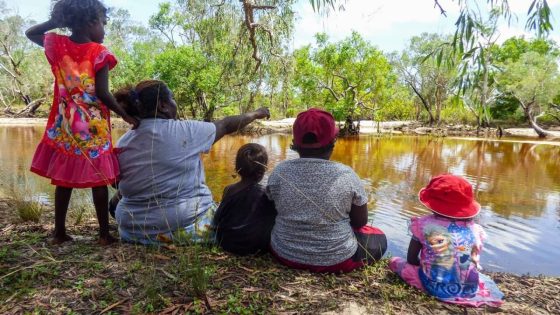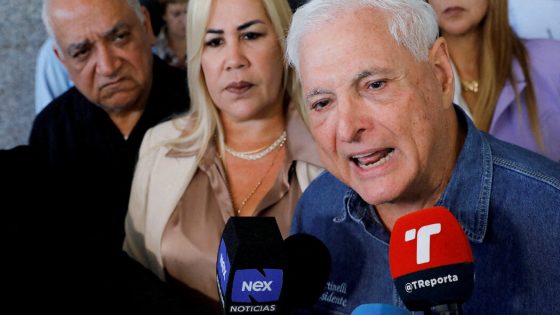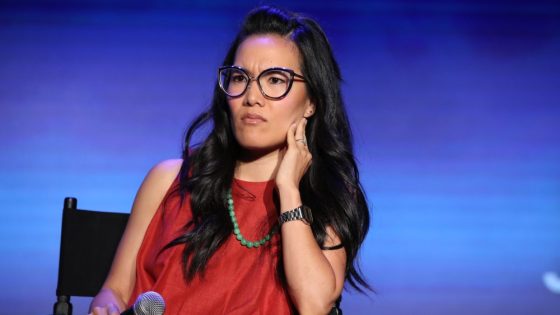A new national champion for Aboriginal and Torres Strait Islander children will be tasked with elevating their voices and reducing the number of Indigenous kids in out of home care and detention, the government has announced.
The National Commission for Aboriginal and Torres Strait Islander Children and Young People will begin work in January.
A First Nations person will be appointed to lead the body, charged with protecting and promoting the rights of Indigenous children and young people across a range of issues.
“It has taken some time to get to this point but we have to get this role right,” said Catherine Liddle, chief executive of the Indigenous children’s peak body SNAICC and chair of the federal government’s Safe and Supported Aboriginal and Torres Strait Islander Leadership Group.
“Our children deserve it.”
Aboriginal and Torres Strait Islander children are almost 11 times more likely to be in out-of-home care than non-Indigenous kids and 29 times more likely to be in youth detention.
Indigenous Australians Minister Malarndirri McCarthy said the national commissioner will focus on working with First Nations people and organisations on evidence-based programs and policies to turn those figures around.
“The national commissioner will be informed by the experiences of Aboriginal and Torres Strait Islander children and young people, whose voices deserve to be heard,” she said.
Their strengths, sense of hope and new ideas will drive systemic change.
Ms Liddle said the new commissioner had been created thanks to shared decision making processes under the National Agreement on Closing the Gap, and would have the strong functions that communities have been calling for a very, very long time.
“This particular commissioner will be the champion of our children,” she told NITV.
“It will be the person that brings forward their voices, and it will be the person that is able to keep systems and processes and programs and services to account.
“We know that what we see in Australia at the moment is terrible rhetoric around Aboriginal and Torres Strait Islander children, and yet what we don’t see is the actions required to actually change what’s happening on the ground.
“This position is that position.”
In recent months, advocates have repeatedly raised concerns about First Nations children being used as political footballs, particularly during state and territory election campaigns.
Human rights groups have also pointed to attacks on children’s rights across jurisdictions, as new Northern Territory CLP Chief Minister Lia Finocchiaro has vowed to lower the age of criminal responsibility from 12 to 10; Victoria backflipped on raising the age to 14 and NSW introduced harsh bail penalties.
“This is the person that will be able to be out there looking, shining a light into every dark recess, raising the voices of hopes and aspirations and will literally change the landscape for our children and families,” Ms Liddle said.
Some states and territories have their own Indigenous children’s commissioners already, including South Australia, where Mirning and Kokatha woman April Lawrie is working on addressing the over-representation of First Nations children in out of home care.
“South Australia has the worst stats in the country, and [Ms Lawrie] was able to say the problem is we do not have the legislation in place, we do not have the teeth in the legislation,” Ms Liddle said.
“That means that we are genuinely holding the system to account and we are genuinely committing to putting in place what we need to ensure that children are protected, that families are strong.
“What a national commissioner can do is work along incredible recommendations like that to ensure that everyone is looking at how they might also lift … what national levers need to be pulled really hard, and how do we ensure that our children are where they need to be – at home with their families.”
Earlier in the week National Children’s Commissioner Anne Hollonds told the National Press Club that Australia lacks “eyes-on” child protection and youth justice, and is lagging behind other nations which are closing detention centres for young people.
A national task force to reform Australia’s child justice systems and the development of a 10-year road map are both needed, Commissioner Hollonds said.
Pointing to research by the Productivity Commission, Ms Hollonds said even America was doing a better job of closing down youth detention facilities.
“They are dealing with youth offending much, much earlier,” she said.
“If they’re needing a secure facility of some kind, that’s usually a community based facility, not this big institutional prison environment.”
Scotland and Ireland have also found better ways to deal with the issue, she said.
“Far too many children and young people across Australia grapple daily with poverty, homelessness, health and mental health issues, disabilities and learning problems, and – especially for many First Nations families – systemic racism and intergenerational trauma,” Ms Hollonds said.
“Research also shows that more than one in three children are living in homes where there is domestic, family and sexual violence.
“Many of these children end up involved with the child protection systems, which are overwhelmed and unable to respond with the care that children need.”
Ms Hollonds also called on the federal government to appoint a cabinet minister for children.
Australia could no longer continue with “business as usual” and should ditch its failed approach of longer sentencing, more policing and more children’s prisons, she said.
What she saw during visits to the nation’s youth detention centres left the commissioner “shocked and distressed.”
“These children were unable to tell me about any hopes or dreams or plans for the future,” Ms Hollonds said.
“All they could see in their future was more of the same but in adult prison.
“The light had gone out of their eyes.”
The children themselves were victims of crime but because their story was rarely heard, it was easy to demonise and dehumanise them, she said
The commissioner warned unless the nation started paying attention to the evidence, the community would be having the same conversation in a decade’s time, only with a lot more tragedies along the way.
Ms Liddle believes the new Indigenous children’s commission is a step in the right direction.
“We are genuinely going to be able to look at what it is that is causing that massive system failure in our children being removed from their families, in that over-representation of our children in the justice system,” she said.
“But we’ll also have that voice that enables our communities to talk about how wonderful our children are, for children to actually speak to their hopes and dreams and to work alongside governments to ensure that every hope and dream is met.”



